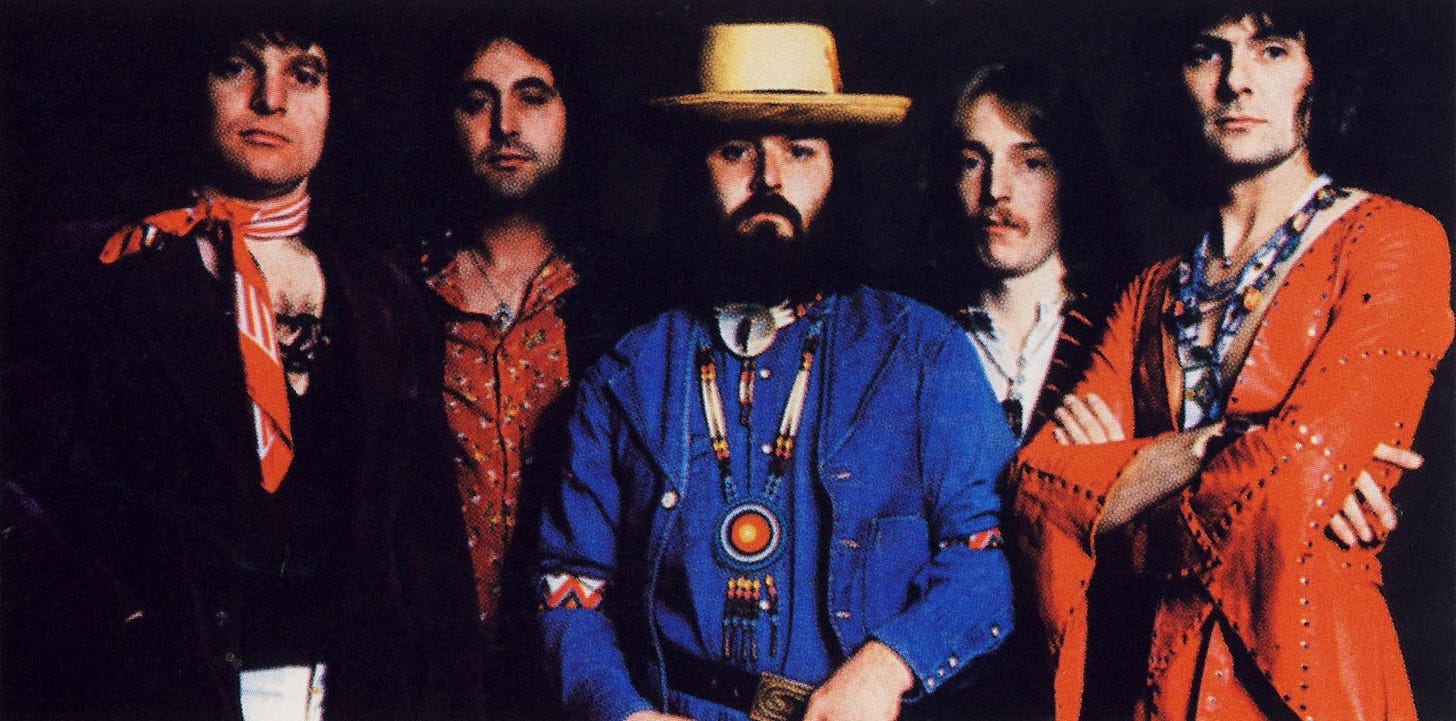The Keef Hartley Band
The Keef Hartley Band was a notable British blues rock group that emerged in the late 1960s, known for their unique fusion of jazz, blues, and rock elements.
The band was led by drummer Keith Hartley, who was born on April 8, 1944, in Preston, Lancashire, England. Before forming his own band, Hartley had played with several influential groups, including Rory Storm and the Hurricanes (replacing Ringo Starr) and later John Mayall's Bluesbreakers, where he succeeded drummer Hughie Flint. It was during his time with the Bluesbreakers that Hartley developed his musical style and reputation, which would inform his work with his own band.
Formation and Early Years
The Keef Hartley Band was formed in 1968, after Hartley left John Mayall's Bluesbreakers. Hartley's vision was to create a band that blended blues, jazz, and rock music, with a significant emphasis on brass instruments, a somewhat novel concept at the time for British bands in this genre. The original lineup included Miller Anderson on guitar and vocals, Gary Thain on bass, Jimmy Jewell on saxophone, and Henry Lowther on trumpet and violin, with Hartley on drums.
Albums and Musical Evolution
The band released its debut album, "Halfbreed," in 1969 on Deram Records. The album received critical acclaim for its innovative blend of blues, jazz, and rock elements. It set the tone for the band's musical direction and was followed by a series of albums that explored and expanded on this fusion.
Over the next few years, the Keef Hartley Band released several albums, including "The Battle of North West Six" (1969), showcasing a more pronounced jazz influence; "The Time Is Near" (1970), a blend of rock and jazz with a touch of folk; and "Overdog" (1971), which incorporated more rock elements and guest musicians. Their final studio album, "Seventy-Second Brave" (1972), saw changes in the band's lineup and a further evolution of their sound.
Woodstock and Live Performances
One of the defining moments in the band's history was their performance at the Woodstock Festival in 1969. Despite playing to one of the largest audiences of their career, the band's performance was not included in the famous Woodstock movie, and as a result, they did not gain the same level of fame as some of their contemporaries who performed at the festival. Nevertheless, the Keef Hartley Band was known for their energetic live performances and continued to tour extensively in Europe and the United States.
Later Years and Disbandment
As the 1970s progressed, musical tastes began to shift, and the band found it increasingly difficult to maintain their earlier success. They faced changes in their lineup and challenges in adapting their sound to the changing music scene. The Keef Hartley Band eventually disbanded in the mid-1970s.
Legacy
Keef Hartley continued to be involved in music, albeit in a more low-key fashion, until his death on November 26, 2011. While the Keef Hartley Band might not have achieved the commercial success of some of their peers, their innovative fusion of blues, jazz, and rock has left a lasting impact on the genres. The band's albums, particularly their early work, continue to be celebrated by fans of the era and are recognized for their contribution to the development of blues rock and the incorporation of jazz elements into rock music.
